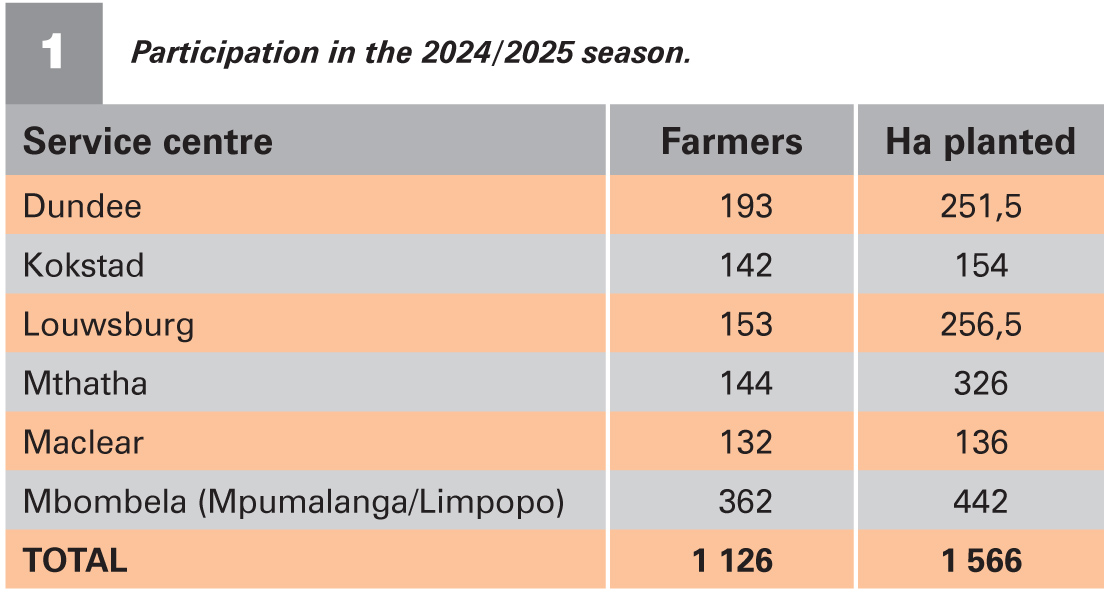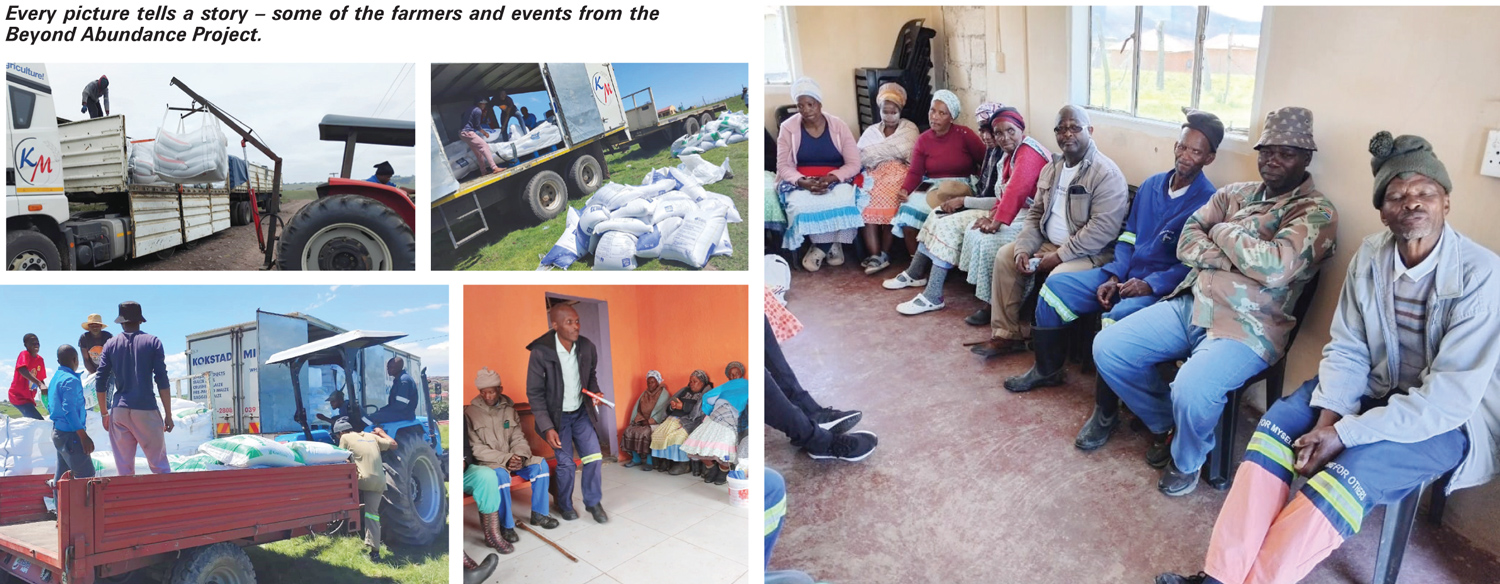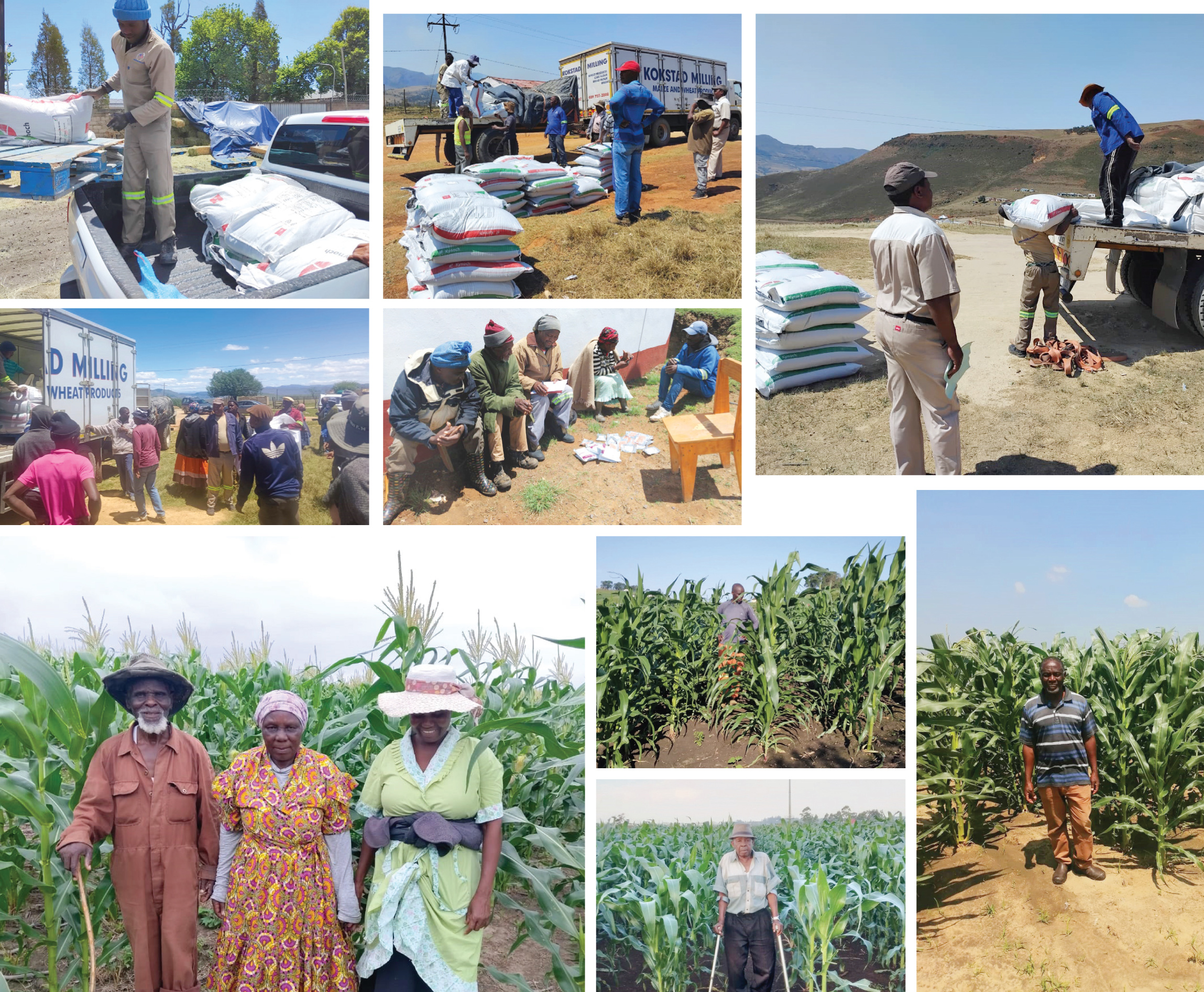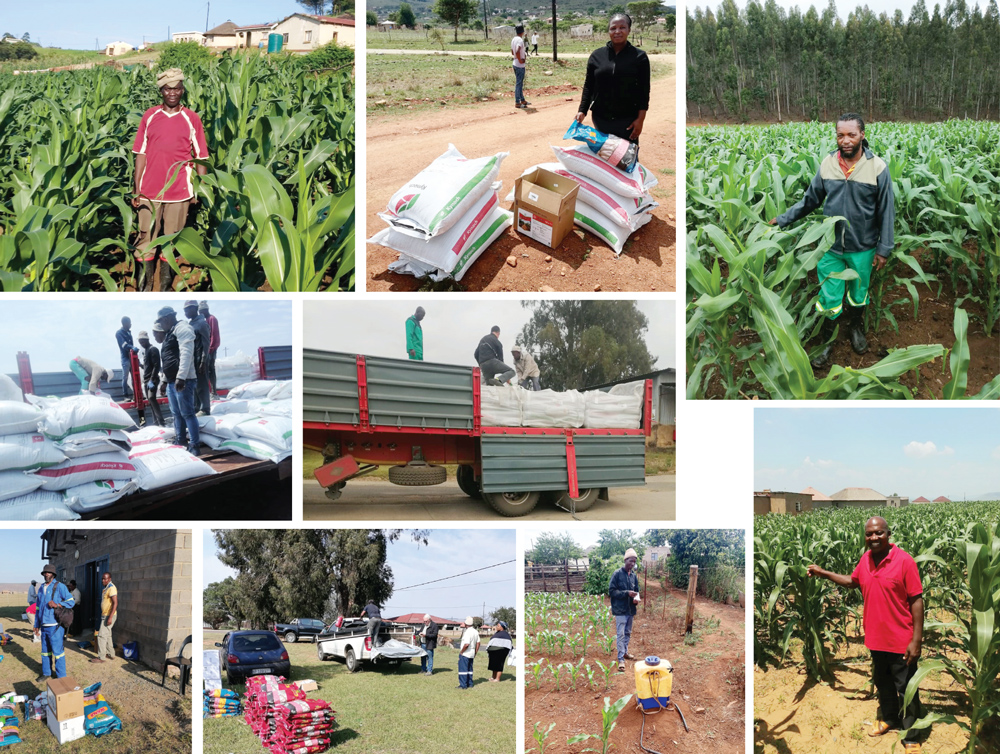March 2025
| COMPILED BY LOUISE KUNZ, ASSISTANT EDITOR, PULA |  |
ONE OF THE WAYS THAT PHAHAMA GRAIN PHAKAMA (PGP) ASSISTS SMALL-SCALE MAIZE FARMERS IN SOUTH AFRICA, IS THROUGH ITS BEYOND ABUNDANCE (BA) PROJECT. THIS PROJECT PROVIDES TRAINING, FIELD VISITS AND INPUT DISCOUNTS TO HELP FARMERS IMPROVE THEIR YIELDS. FARMERS ALSO LEARN BETTER AGRICULTURAL PRACTICES AND ARE ASSISTED TO MAKE INFORMED DECISIONS ABOUT THEIR FARMING OPERATION.
BACKGROUND
Grain SA’s Farmer Development Programme partnered with the Jobs Fund during the 2015/2016 season to launch a project aimed at empowering farmers. The initiative focussed on enabling farmers to contribute towards their own input costs, while providing access to advanced production inputs and mentorship to help them achieve commercial yields. This project was called ‘From subsistence to abundance’.
After the project concluded its four-year term, the programme recognised the ongoing need for support and introduced the Beyond Abundance (BA) programme, which continues to operate today.
At the beginning of the initial project, a baseline survey was conducted and it was discovered that the average yield of maize in the areas where the BA project was implemented is 1 t/ha. Many of the farmers in this project mostly produce for their own consumption and sell their surplus locally. However, some farmers who had also started on 1 ha have progressed to planting as much as 60 ha.
In the 2023/2024 season, there were 662 farmers who planted a total of 564,5 ha. Table 1 highlights the participation in the current (2024/2025) season. A significant increase in participation is evident compared to the previous season.

FRIENDS OF THE PROGRAMME
Sponsors form an integral part of the programme’s success and the PGP team is grateful for the support of all their ‘friends in agriculture’. This project is currently sponsored by the Sasol Agricultural Trust and the South African Cultivar and Technology Agency (SACTA), with Pannar/Corteva supplying sorghum seed samples to all the BA farmers.
The suppliers who ensured that the inputs were delivered on time, to enable the farmers to plant within the planting window, are valued by the team. ‘A big thank you to the suppliers, transporters and farmers for a super job done in the Eastern Cape. As everyone knows, the areas in which we operate are not easily accessible and getting input orders on time is a challenge.
‘Our farmers play a huge part in the successful deliveries, as they arrive on time to offload trucks. They then transport it to their homes – sometimes breakdowns and rain can cause delays, but the farmers are super cooperative and offload the trucks with their traditional Eastern Cape smiles,’ says Eric Wiggill, regional development manager in the Eastern Cape.
The suppliers for the Eastern Cape (Kokstad, Mthatha and Maclear) are:
In Limpopo, the Department of Agriculture and Rural Development (DARD) sponsored BA farmers with some bags of fertiliser. ‘Those who planted 1 ha each, were given three bags of 4.3.4(40) and three bags of 1.0.0(40) for topdressing. The farmers who planted from 3 ha upwards were given nine bags of 4.3.4(40) and nine bags of 1.0.0(40) for topdressing,’ shares Jerry Mthombothi, regional development manager at the Mbombela regional office.



FEEDBACK FROM THE REGIONS
For the BA farmers, having a mentor who visits the study groups at least twice a month has made a huge difference – not only in times when they need support, but to their farming skills in general. ‘The farmers have welcomed the idea of having a mentor who works closely with them in order to assist with duties associated with day-to-day and long-term activities on the farm,’ says Lunga Mhlonyane, a mentor in the Mthatha and Kokstad regions.
In the previous season, the yield of BA farmers in Limpopo increased drastically because of the support that they received from the Department of Agriculture. Some farmers harvested more than 6 t/ha. ‘During this planting season, we expect that some farmers will harvest more than 8 t/ha – especially those who planted a bit later, since they received a lot of rain late in December,’ says Jerry. He adds: ‘That is if they applied the correct amounts of fertiliser and controlled the weeds adequately.’
Although a successful crop is one of the most pleasing sights for farmers, as it means food on the table and money in the pocket, they (and the mentors) face many challenges throughout the season. In certain areas in KwaZulu-Natal, the mentors had to offer more support, especially when the heatwaves and initial drought early in the season were a serious problem. For some of the farmers in Mpumalanga, the high rainfall after planting has also been a source of concern.
‘The Eastern Cape farmers planted early this season and have been rewarded with good rains – this has shown in good germination,’ says Eric. ‘Training by the mentors has really shown in the population, weed control and topdressing this season, which will contribute to a good yield.’
Although some areas in the Eastern Cape have been hit by hail, Eric is hopeful that the maize will recover, as the damage was in the vegetative stages of the maize plant.
It is clear that the BA farmers have realised how beneficial regular attendance of study group sessions is, as they get valuable information and guidance to use in the field.
Publication: March 2025
Section: Pula/Imvula